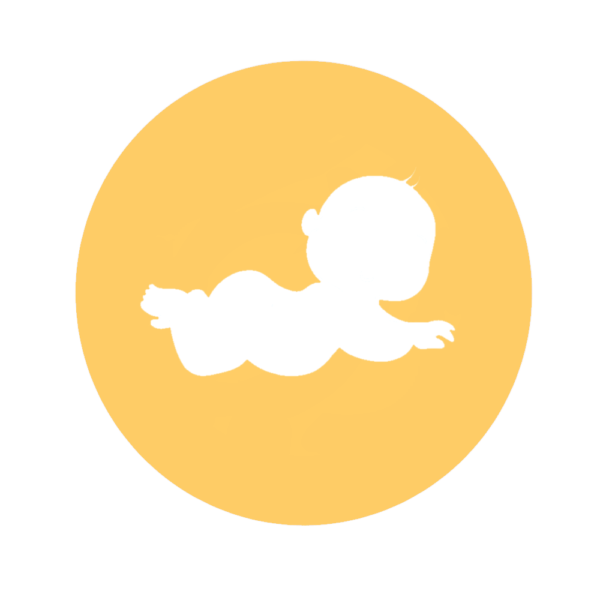Feeding your baby: month 4-7
Feeding your baby

During this period, most infants are introduced to solid foods. The American Academy of Pediatrics (AAP) recommends gradually introducing it to babies about 6 months old. Starting it at the right time depends on your baby’s readiness and nutritional needs.
If you are not sure when the right moment is, speak with your doctor before giving Your Child solid foods.
Is Your Child ready to eat solid foods?
You know your baby is ready for solid foods if the little one:
- Has good head and neck control: Your baby needs to be strong enough to sit upright and control the head to take in food independently
- Shows interest in food: If not, it’s probably too early
- Loses the tongue-thrust reflex: It means your baby uses the tongue to move food from the front to the back of the mouth to swallow. This reflex prevents babies from choking
How to test for the tongue-thrust reflex?
You can test if Your Child still has the tongue-thrust reflex by simply offering the little one a clean spoon as if you’re trying to feed. Then, as an option, you can add a small amount of breast milk or formula. If Your Child’s tongue thrusts forward and rejects the spoon, the reflex is still present. On the other hand, if the baby accepts the spoon, the reflex may be fading or is already gone, and Your Child might be ready for solid food.
How should I start feeding Your Child solid foods?
When your baby’s doctor tells you that it’s safe to feed your baby solid foods, try to introduce the food when Your Child is hungry. Do this while the baby is sitting up in a baby’s chair or on your lap.
The first solid foods are usually soft fruits, boiled vegetables such as pumpkin, or iron-fortified infant cereal mixed with breast milk or formula. In the beginning, you can let the baby smell and taste the food by dabbing on the lips. Don’t be discouraged if the first few attempts are rejected. Try again after a while. It takes time for your baby to learn how to chew and eat solid foods. Keep in mind that during this “learning” period, breast milk or formula milk should still be the primary source of nutrients.
Foods to avoid
Some babies develop allergies to certain foods, so you should tell your doctor about any family history of food allergies. Never give honey to babies under 12 months because it can cause botulism. Also, to prevent allergies, avoid feeding your baby with cow’s milk until after their first birthday.
Likely signs of food allergy or allergic reactions include:
- Rash
- Bloating or increase in gassiness
- Diarrhea
- Vomiting
Tips for feeding Your Child with solid foods
Take note of the following when preparing foods:
- Wash your hands very well and often, and follow the rules of food safety
- Freeze portions that you aren’t going to use right away rather than canning them
- Use cooking methods that preserve as many nutrients as possible
- Do not feed your baby beets, spinach, green beans, squash, or carrots if the little one is under 4 months. These foods contain high levels of nitrate that can cause anemia in babies
- Do not feed your baby right from the food jar. Take a portion from the whole jar to prevent cross-contamination from the baby’s saliva in the spoon into the jar
- Throw any refrigerated baby food away if unused for over 1 week
Whether you buy or prepare it yourself, remember that your baby’s food should be finely pureed. And try to keep it to one ingredient at a time to spot any allergic reactions.
Verified:
Dr. Piyawut Kreetapirom, MD. license no. 41578 (8 July 2021)



